Immediate past Chairman of the Independent Corrupt Practices and Other Related Offences Commission, Professor Bolaji Owasanoye (SAN), is the Coordinating Director of the Proceeds of Crime Management and Illicit Financial Flows Coordination Directorate of the Federal Inland Revenue Service. In this interview THISDAY, he speaks on why FIRS is organising a national conference on IFFs, the dangers the menace poses to economic development and efforts that must be made to address it
F
IRS plans to hold a national conference on illicit financial flows. How significant is the conference to the activities of FIRS and by extension Nigeria?
It is significant to Nigeria’s economic development and well-being because tax revenue is the surest source of income for government’s programmes and the nation’s economic development. Illicit financial flows (IFFs) significantly affect tax revenue and if people don’t understand how it affects tax revenue, they will not appreciate the effect on the ability of the tax authority to meet statutory mandate, which is to collect revenue for government. Basically, there are three sources through which a country loses money that it ought to have for its development aspiration. One is by commercial transactions, another is by corruption, and the third is by criminal transactions. People focus more only on corruption and criminal transactions, which jointly account for slightly above 30% of the losses. Commercial transactions account for over 60% of revenue losses.
Within that framework of commercial transactions, the biggest losses are to tax revenue. But people don’t know. And this is based on the operations of corporations which have commercial transactions that appear legitimate on their face value. But in actual fact, they are being used to move money and reduce taxable profit. What the tax authority looks out for apart from specifics like Value Added Tax (VAT), stamp duties and PAYE and all that is to tax profits of corporations and businesses. If you succeed in significantly reducing your profit because of these anomalous practices, you have reduced the collectible of the tax authority. So, the conference is designed to bring attention to these issues, how they happen, the various agencies that must work together and collaborate to make sure that we reduce very significantly, in our own interest, revenue losses to illicit financial flows.
There is a lot of opacity around the subject matter (IFFs) even the activities that underline it, the flows, the transfers, difficult to determine. How big a challenge is IFF?
That’s one of the reasons for the conference. We want to call attention to the kinds of things that lead to outflows. I will give you some examples. If, for example, a company wants to import phones and to reduce the amount of duty it will pay to the government, it falsifies the invoices. It has already stolen some money which the government would have been entitled to as part of the profits of the company. If you export goods, as government is encouraging diversification of our exports base now, and you export 1,000 tubers of yam, but you put 500 tubers in the invoice and you are supposed to repatriate your earnings to boost Nigeria’s foreign exchange earnings. You will only bring in the income for 500 tubers. You will keep 500 offshore. So, the government cannot tax the remaining because you falsified those trade records. These things are happening within the commercial sector, particularly when companies do inter-corporation transactions. Let us say that three companies are part of the same conglomerate. One subsidiary produces plastics, another one produces bottle tops, the third subsidiary produces water, and you want to do business among yourselves. The law says that they will trade at what we call arm’s length. Fairly, each entity will protect itself. But the law ignores the reality that somebody owns the three companies.
So, if they want to move money and the business is being operated in different countries with one country has more potential than the others. They will move money from that place that has potential, so they can tell you to do the transaction one way or the other and move money from the economy that has potential to the one that doesn’t have or to pretend that this is the headquarters of the company, that is the home country of the company. So, when we finish doing business every year, our profits move to this place, whereas the economic activity is not in that place; the economic activity is somewhere else. All your operations are somewhere else. So, if you are creating environmental problems, for example, it is somewhere else. Now if you deny that somewhere else tax revenue, how will you fix some of the problems that you have created in such a place? So, these things are not obvious. Unless you have the skills to know what to look for, you will miss out a lot.
You raised a very important issue. How big a problem is this? This is one of the reasons why we need to dig deeper into this. The African Union in 2015, about 10 years ago or more, set up a committee headed by former president of South Africa, Thabo Mbeki, to look at this very issue because it was realized that African countries, especially countries with extractive resources and virtually every African country, especially Nigeria, is losing a lot of revenue estimated to be about $80 billion per annum. If you look at the size of the economies of the countries, Nigeria is a big economy in Africa. And the report flags that a significant portion of that is being lost by Nigeria. Nigeria itself has a responsibility, which is one of the things that the FIRS is doing with the creation of a Proceeds of Crime Management and Illicit Financial Flows Coordination Directorate (POCM-IFF) and to take a closer look at these issues. Of course, before the creation of the POCM-IFF unit, other steps were being taken to mitigate this issue. FIRS has been representing Nigeria in the Organisation for Economic Cooperation and Development (OECD), Base Erosion and Profit Shifting (BEPS) Inclusive Framework and all that. FIRS has issued regulations to deal with transfer pricing. The Service is liaising with other agencies and all that. But still, we have not been able to come out accurately with data to close the knowledge gap as to the exact amount that we are losing. So, part of what we will discuss at this conference is this need for collaboration: bringing out all those agencies that have one role to play or the other. This will ensure we reduce the losses. The other significant thing to say is that it will also build the capacity of FIRS tax officers who are in the field and who will be better trained to know what to look for in such transactions.
It’s good you mentioned the issue of inaccurate data because people have alleged that those who are at the vanguard of this campaign against IFF do not have the data. They give estimates and approximations which are not backed with data. We may not really appreciate the impact if we don’t have accurate data.
One of the things the conference will discuss is the need for us to work together to get the data. From the little that I have said, you would have noticed that many agencies of government are involved. For example, like Customs, if you don’t get data from such institution, you cannot be able to close the knowledge gap. You are aware that the government approved the national single window project which is domiciled in the FIRS. This is one of the measures being taken to try and mitigate illicit financial flows. The more these projects succeed, the better the revenue collection. No doubt about it. So, there’s a link between this issue and enhanced revenue collection. We can only popularize it more to our own advantage.
There are existing legal frameworks such as the Money Laundering (Prohibition) Act 2022 and the law against terrorism financing. Are these laws not effective in tackling IFFs?
These laws are relevant, but they do not solve all the problems. They do not close all the gaps. For example, the Money Laundering Act alone does not stop transfer pricing. Transfer pricing, for example, happens from aggressive tax avoidance and aggressive tax planning by companies. A company that is determined to undermine the ability of the tax authority to collect revenue will plan its affairs in the most aggressive manner to exploit every loophole. Aggressive tax avoidance equals tax evasion virtually because your intention is to do everything and anything to make sure that the government does not get this revenue from you. Then, we don’t have laws specifically that criminalize and prohibit falsification of trade records. So, if you find anybody who is guilty of this, you must try and deal with it in another way by, of course, an intensive audit to show that they have breached extant laws and all that. You will also notice that FIRS is listed as one of the relevant organisations (ROs) under the Proceeds of Crime (Recovery and Management) Act 2022. But people will say FIRS is a tax authority, what’s its business with proceeds of crime? But FIRS is actually a law enforcement agency. The new Tax Administration Act, Chapter 4, I think it is, creates a whole range of offences and one of the Sections, 139 maybe, gives FIRS officers power to prosecute offences created by the Act. When you are given prosecuting powers of the Attorney General as the Chief Law Officer of the State, you become a law enforcement agency. And once you choose to prosecute someone for a crime, all the constitutional safeguards for criminal justice administration will kick in.
That means you can detain someone. You can arrange for them to be arrested. They can be denied liberty and their property, assets if they lose the case. It must be clear. But, because the FIRS is trying to build trust and get the cooperation of citizens, it has chosen rather than to use its enforcement powers, to use its civil remedies power more. So, if you are found not to have declared your tax, that is a beach of the law. But, FIRS will give you an assessment and ask you to pay. The Service is trying to build a customer-centric approach, because it wants to build trust, gain citizens’ confidence and all that. It doesn’t mean FIRS cannot bite; it must not lose sight of that. The staff must not suffer an identity crisis by not knowing that the FIRS is a law enforcement agency. We smile; we want to get people to cooperate but don’t take the Service for granted. And when you realize that FIRS has asset recovery powers, then you understand how to situate these whole illicit financial flows.
On a global scale now, what kind of collaboration would you be saying that we should have? The media play a critical role in this, especially when you consider what a German investigative journalist did with the Panama Papers.
This is a good question. When I was at ICPC, journalists were partners in this project. They were involved in the conversation. I’m here at FIRS calling attention to the same issue and the first thing is that charity should start from home. Right now, a good number of FIRS staff don’t even know anything about IFFs and how they happen through trade-based money laundering, where you launder money through trade transactions. You have accumulated money, and you are looking for a way to take it out. You create a fictitious sale transaction between related entities, and you move the money. So, people don’t understand how those things are happening. They think they should just look at your audited accounts, the profit you declared, maybe look at your operations and notionally decide whether you have underpaid and all that. So that’s number one. Journalists inform, educate and entertain people, and they are very critical to this conversation. So, I absolutely agree that they are important partners.
In terms of international framework and who is Nigeria collaborating, Nigeria is very active. Indeed, Nigeria leads by example by making its voice heard in the UN. Nigeria moved a number of motions and resolutions at the United Nations General Assembly (UNGA) and was part of the debate towards introducing a multilateral tax treaty. I was also a member of the UN panel that made very serious recommendations about the issue of illicit financial flows, which was adopted by UNGA in 2021. This has led to the process for discussions for a multilateral tax treaty. FIRS is representing Nigeria. Mr Matthew Gbonjubola, coordinating director in FIRS, is part of that committee. We made a case that if the world does not deal with illicit financial flows and revenue losses by developing countries, we will forever be looking forward to development assistance or borrowing, whereas we have natural resources. Nigeria has been very active in that process and at the AU, Nigeria, as I said earlier on, is a member of the OECD and BEPS Inclusive Framework. We have been attending the meetings and benefiting from the conversation, and we are shining our eyes about what is in our interest and what is not in our interest. Our economy is big and dominates the West African economy.
So, if there is any bleeding, we suffer the most, and if there’s any benefit, we will gain the most. We have a responsibility to make sure that we get things right in this regard. So, it can only get better. Nigeria should make its voice heard more and lead by its own example. I was at some international meeting about two years ago where Nigeria was commended for taking action through the Finance Act that tried to amend a few legislations, including Companies Income Tax Act (CITA) towards taxing digital transactions. Now, many countries are still looking for how they will get around this. Not only did Nigeria introduce that, but Nigeria did not also immediately adopt the OECD recommendation because it was inimical to our interest. Nigeria reviewed it and took a position that was in its own best interest. These are examples of at least our understanding that we don’t have to follow everything hook, line and sinker.
You admitted earlier that there is no legal framework that specifically addresses the issue of IFFs. Would you want the National Assembly to look in that direction?
I will advise that we take one step at a time. We will get there ultimately. It is something that the FIRS should drive. We need to build a core of enlightened people first within. Otherwise, if you start an advocacy to say we need such a law now, people will start wondering and if the National Assembly members were to ask any staff right now and they say they don’t know what it means, they will say it is the chairman’s idea. But once they are convinced and understand that the menace is inimical to us, they will become willing advocates. But ultimately, we will need an amendment to some of our laws.
What are you doing to tackle those who are transacting business with illegally earned money within the country?
Already there are legal laws. We talked about money laundering law. We have enough laws to deal with that. We just need the political will to enforce the laws. When we implement these laws effectively, we will begin to see the practical gaps therein. But those laws are not fully implemented yet. Globally, certain professionals have been flagged as facilitators of money laundering and capital flight: accountants, auditors, lawyers, real estate people, bankers and so on. These are professional bodies that crooks and criminals use to launder money. So, each of those professional bodies is expected to take measures, and the Money Laundering Act of 2022 created the Special Control Unit against Money Laundering (SCUML) and bound professional bodies, including lawyers. Lawyers plead attorney-client privilege. If you are my client and you tell me something, you can trust that I will not divulge it to anybody. But if you tell me that you are a criminal, I have a responsibility. So, the guidelines help lawyers to profile their clients so that they don’t get us into trouble. But initially when this was first passed in 2011, the legal profession resisted and even went to court, and they won. I was one of the few voices that said, “Look, the other examples that we are citing of countries with fidelity who self-regulate, do we have the culture of those countries? Do we have the standard of those countries of self-regulation? How robust is our self-regulating mechanism here? How many people have we brought to book? Do we have the right framework? So that led to the 2022 amendment which now specifically targeted and mentioned lawyers. Again, the Nigeria Bar Association (NBA) has challenged it, gone back to court, but as in fairness to the NBA, created a new framework within our rules of professional conduct to guide lawyers and set up a team to assist lawyers to comply. So, there is a significant improvement.
But it’s a wrong message when a prominent body like NBA put up such resistance. Accountants and auditors deal with their own immediately. Once they flag you, they get rid of you once you are a channel for money laundering. The existing legal framework already provides measures to deal with those who facilitate capital flight. If you are going out of Nigeria, for example, and you have $10,100 on you, even though it’s your money, it is illegal. You earned it legally, but you try to transfer it illegally. It becomes tainted. The money will be seized, and you can be prosecuted and sent to jail. Whereas you did not steal the money, but because you have tried to move it contrary to regulation.
But what of those who move it with their ATM cards?
No, that’s not illegal. Cash-based transactions are what have a propensity for crime. Once you are doing cash, it means you don’t want the source to be traced. But if it’s from your card, it shows where it comes from, where it is going, for what purpose, and it is easily traceable. But once it is cash based, then part of it is used for illegal businesses or you have earned it illegally. People who deal in drugs, they will not say pay with a card. They want cash, and when they collect the cash, the first concern is how to quickly turn it into clean money. They look for a way to put it in a business that is legitimate on the surface. Once you have a large volume of cash like that, your major concern is how to quickly use it for business and clean it up. That’s why it is called money laundering, like you launder clothes.



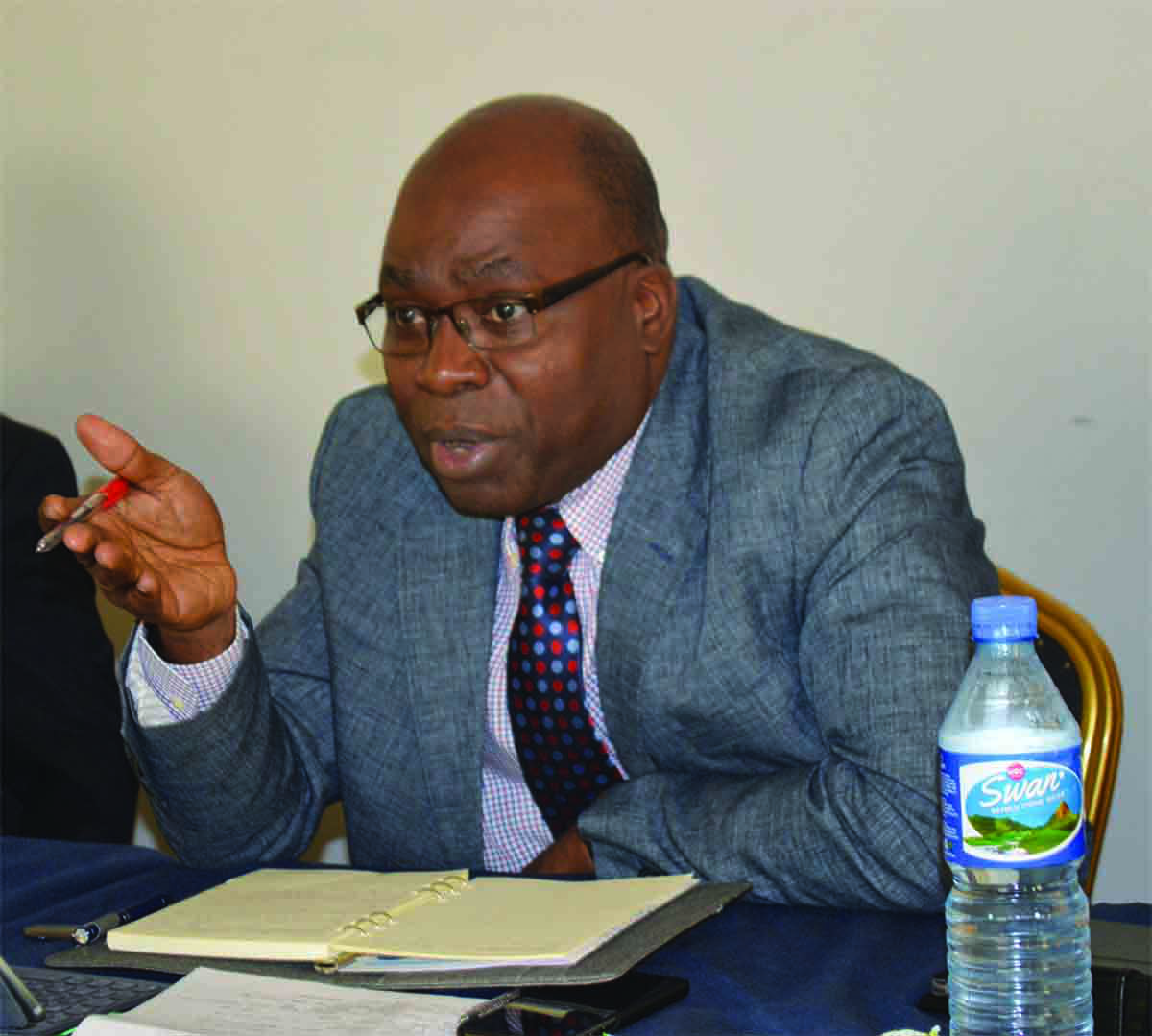
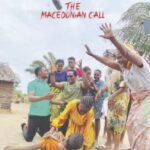

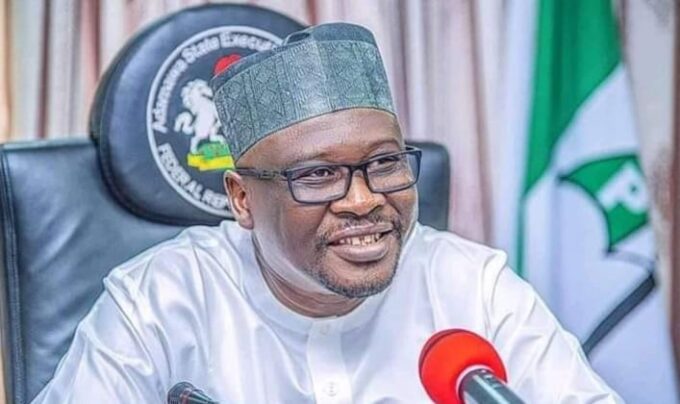

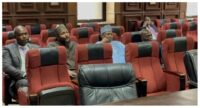


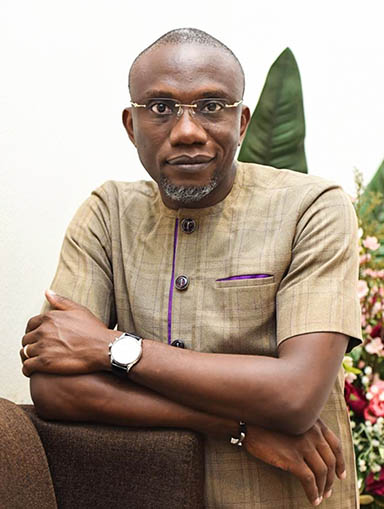
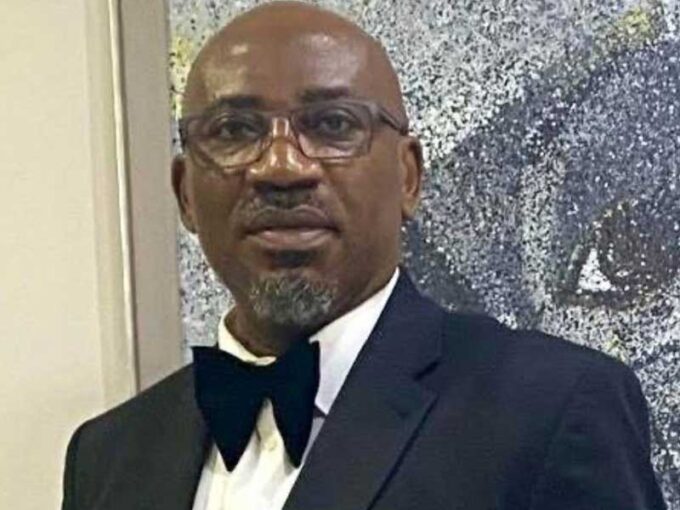



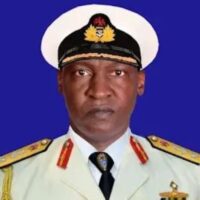
Leave a comment